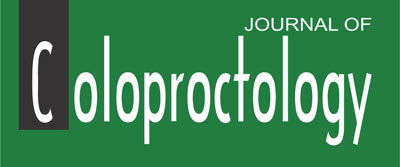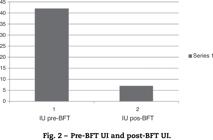Introduction
The prevalence of fecal incontinence (FI) has increased in recent decades, due to an aging population; and result in negative impacts on quality of life. Therefore, it is essential to search for an effective treatment in order to minimize the morbidity caused by incontinence.
Objective
To evaluate the effect of perineal training in the treatment of patients with fecal incontinence by biofeedback.
Method
This is a prospective study which evaluated 85 patients with FI from January 2009 to January 2014, at the Coloproctology outpatient clinic of the Hospital São Lucas/Cascavel, Paraná.
Results
Mean age was 47 years and the duration of treatment ranged from 5 to 25 sessions (mean, 13 sessions). From the women involved in the study, 70% (50) had vaginal deliveries and 34 (40%) participants were submitted to some orificial surgery. The FI score at baseline was 10.79 (6-17) and post-treatment FI was 2 (0-14) (p< 0.001). In the population studied, 49.4% (42) of the patients had an associated pre-BFT UI; and only 8.2% (7) had post-BFT UI (p< 0.001).
Conclusions
The data presented in this study confirm that perineal training through biofeedback was effective in the treatment of patients with fecal incontinence without immediate indication for surgery, still ensuring for this technique the advantages of being effective, painless and of low cost.
Fecal incontinence; Biofeedback; Anismus

 Thumbnail
Thumbnail
 Thumbnail
Thumbnail

